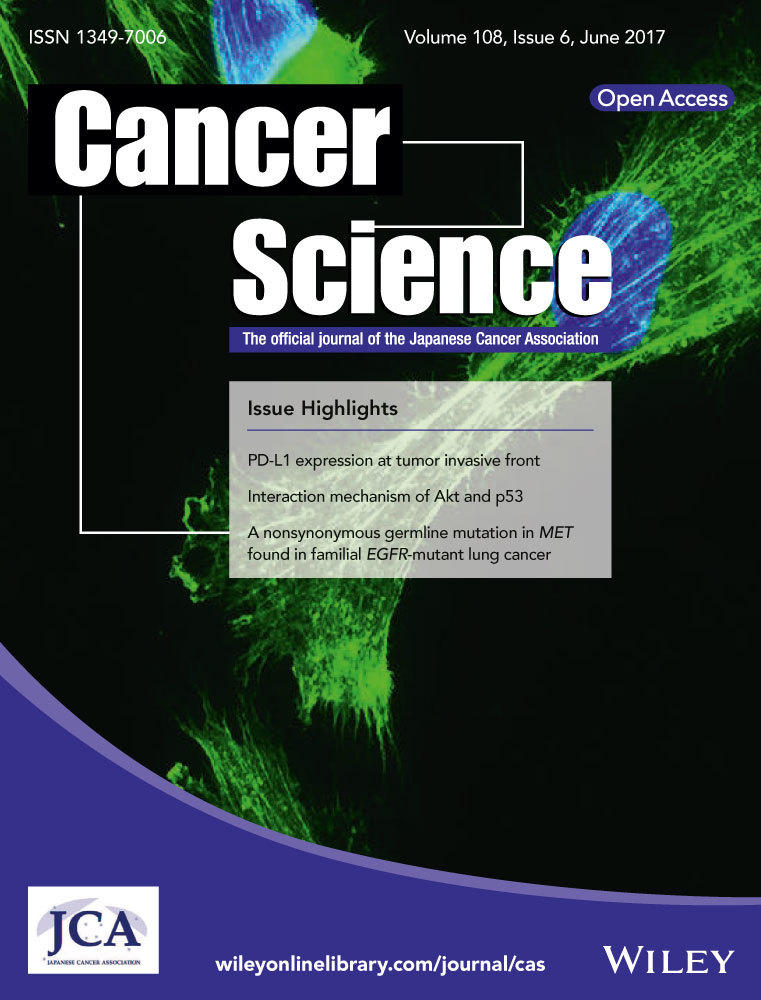Exome sequencing deciphers a germline MET mutation in familial epidermal growth factor receptor-mutant lung cancer
Funding Information
This work was supported, in part, by Grants-in-Aid for Scientific Research and the Project for Development of Innovative Research on Cancer Therapeutics from the Ministry of Education, Culture, Sports, Science and Technology (Tokyo, Japan), the Core Research for Evolutional Science and Technology Program, the Adaptable and Seamless Technology Transfer Program from the Japan Science and Technology Agency (Tokyo, Japan), and the Urgent Research Grant Program from the Astellas Foundation for Research on Metabolic Disorders (Tokyo, Japan).
Abstract
Lung cancer accompanied by somatic activating mutations in the epidermal growth factor receptor (EGFR) gene, which is associated with a significant clinical response to the targeted therapy, is frequently found in never-smoking Asian women with adenocarcinoma. Although this implies genetic factors underlying the carcinogenesis, the etiology remains unclear. To gain insight into the pathogenic mechanisms, we sequenced the exomes in the peripheral-blood DNA from six siblings, four affected and two unaffected siblings, of a family with familial EGFR-mutant lung adenocarcinoma. We identified a heterozygous missense mutation in MET proto-oncogene, p.Asn375Lys, in all four affected siblings. Combined with somatic loss of heterozygosity for MET, the higher allele frequency in a Japanese sequencing database supports a causative role of the MET mutation in EGFR-mutant lung cancer. Functional assays showed that the mutation reduces the binding affinity of MET for its ligand, hepatocyte growth factor, and damages the subsequent cellular processes, including proliferation, clonogenicity, motility and tumorigenicity. The MET mutation was further observed to abrogate the ERBB3-mediated AKT signal transduction, which is shared downstream by EGFR. These findings provide an etiological view that the MET mutation is involved in the pathogenesis of EGFR-mutant lung cancer because it generates oncogenic stress that induces compensatory EGFR activation. The identification of MET in a family with familial EGFR-mutant lung cancer is insightful to explore the pathogenic mechanism of not only familial, but also sporadic EGFR-mutant lung cancer by underscoring MET-related signaling molecules.




